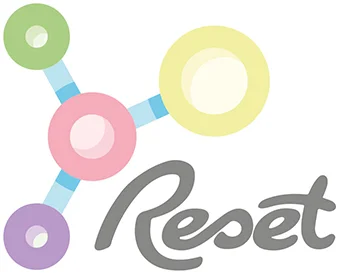Two thirds of adults in the UK suffer with poor disruptive sleep. ‘I need help to improve my sleep!’ is a common phrase in my clinic. My response is always; ‘Mother nature blessed human beings with this superpower every night, it is amazing’. Yes, I call it a superpower because sleep doesn’t get the reputation it deserves. Let us explore why and how you strengthen your relationship with sleep.
Why do we need sleep?
In our hierarchy of needs sleep is one of the foundations to all round wellness. It is worth noting that it doesn’t always come easily to us humans. For some who cant sleep it can be a real struggle to improve sleep and switch off When counting the proverbial sheep does not work frustration sets in adding fuel to the fire. To help those who are battling with sleep I am also sharing my top tips. If you want help to improve sleep quality and quantity these tips will help you to work towards that.
We all know that we function best after quality sleep. If we don’t consistently fulfil quality sleep with in a 24hour period, it affects many aspects of our life, from mood, concentration, motivation, energy, focus to our hunger and food choices. When we improve sleep it has a positive effect on our behaviours. It will also affect how we interact with others which influences how we feel emotionally and physically.
One night of improved sleep positively has a positive impact on the immune system, reproductive system, cardiovascular system and the ability to solidify and recall memory.
Sleep experiment
Neuroscientist, university professor and sleep specialist Matthew Walker, has previously described a sleep experiment. The experiment happens in over 70 countries twice a year and it’s called day light savings time.
When the clocks go forward in the springtime and we lose an hour sleep. When this happens we see a significant 24% increase in heart attacks. We also see huge 300% increase in car accidents. To contracts this, when we gain an hour sleep in the autumn, we see a similar reduction in heart attacks and car accidents.
Sleep really is our superpower; it underpins the foundation of healthy wellbeing.
What happens when we sleep?
Many of us assume that during sleep the brain and the body is temporarily switched off. It is now understood that this is not the case. During sleep the brain is working hard storing memories, growing new cells, maintains cells & disposing of waste cells.
During sleep a clean-up process takes place as the brain is busy processing all the information we have taken in throughout the day. It decides what to keep and what to throw away. It’s a bit like running the hoover around your brain, getting rid of the waste, fluffing the carpet pile, and leaving it looking so much better than before. The result being a clear, clutter free mind and a replenished body.
Whilst asleep, the brain is working in 90 min cycles of light sleep / deep sleep / REM (Rapid Eye Movement commonly known as the dream like state).
Who needs sleep?
All mammals need REM and non-REM to enable the brain to function effectively. As adults’ humans need around seven to nine hours sleep. For every two hours of consuming information, one hour of sleep is required for processing. Most adults needs 7-9 hours of sleep per night but this can be different for everyone. Your Circadian rhythm is the 24 hour cycle which determines your physical, mental, and behavioural changes. By listening to your body and mind, you can determine your sweet spot for length of sleep.
If you need help to improve sleep and it is becoming a problem, there are many steps that can be implemented. While there is no magic wand for getting to sleep and staying asleep, we CAN proactively increase our likelihood of a good quality night’s sleep.
Reset Hypnotherapy’s top tips – Help to improve sleep quality
I’m not a medical professional. I can’t offer you medical advice here, but I am a qualified and experienced solution focused hypnotherapist who successfully helps people with sleep problems. If you feel you do have a sleep problem, I will always suggest a visit to your GP or sleep doctor.
- Consistency is king! to improve sleep go to bed at the same time and wake up at the same time. Set yourself a going to bed alarm or prompt, a gentle chime perhaps. This is so important to regulate your sleep patterns. Even at the weekend!
- Reduce Caffeine and other stimulants. These chemicals keep the brain alert. Drinking coffee and tea could be a morning to early afternoon routine rather than evening.
- Cannabis and sedatives knock out the front cortex of the brain, (the conscious part), so whilst you may believe you have been asleep the brain patterns produced are very different. CBD Oil studies so far suggest this chemical does not impact on sleep; however, the evidence is still limited.
- Alcohol interrupts sleep cycles, specifically REM, therefore the quality of sleep isn’t as efficient as that of a brain that hasn’t consumed alcohol.
- Sleeping tablets generally don’t work so well in helping to improve sleep in the long term as they act similarly to alcohol. The disruption of REM has a negative effect on refreshing the mind. I would always recommend discussing taking sleeping tablets with your pharmacist, GP or sleep doctor.
- Change the temperature of your room to be a few degrees cooler 15-19c. In evolutionary terms when humans slept outside in tribes the dip in temperature at night was a prompt for the brain as ‘time to sleep’.
- A nice hot bath will reduce the bodies internal core temperature to reduce body temperature, which is another great prompt to sleep.
- Get out in the day light. We have a gland in our brain called the pineal gland which reacts to daylight and can reset itself keeping our internal circadian rhythm (internal sleep clock) on track, so our brain is aware of when it is night and when it is day.
- Artificial light / phones / TV / electronic devices etc can trick the brain into thinking its day light. Reducing screen time in the evening will keep your circadian rhythm on the right track.
- What about napping? If you are struggling with your sleep, then try not to nap and save it up. Finding distractions and keeping moving such as going for a gentle walk or even a swim can really help with this.
- Exercise is great for using up physical energy and increasing the melatonin the natural sleep hormone. Try to leave at least two to three hours before sleep to allow the lovely feel-good endorphins to settle.
- Keep your bedroom for sleep and other sleep time activities. We might be tempted to lay in bed and watch a movie but try not to confuse the brain with associating your bedroom with sleep and awake activities.
- If you are really struggling to get to sleep, then get up and out of bed and do something boring. You might choose to do some cleaning, get a hot drink, or read a very dull subject and go back to bed when you are feeling tired again.
- When the brain receives too much information to process, by over thinking and worrying during the day, there is not enough time in our sleep cycles for physical and mental restoration. When this happens, we wake up suddenly during the night feeling mentally and physically exhausted. Managing your stress levels is extremely important for a good night’s sleep. Hypnotherapy is a great way to help improve sleep by managing stress and overwhelm.
- Changing your mindset around sleep is a game changer. The brain is great at prediction and when we predict a poor night’s sleep our behaviours aid to that affect. Instead of telling yourself ‘I’m going to have another awful night’s sleep’ how about saying ‘I’m looking forward to having a really good replenishing night’s sleep tonight’. These positive intents reinforce the brain and reduce sleep anxiety.
- Guided relaxations are a great way to calm and prepare the brain helping to improve sleep. In a full relaxed, daydream like state, the brain begins to process stress from the day mimicking REM. You can find my guided relation for a good night’s sleep here https://reset-hypnotherapy.co.uk/download-guided-relaxation/
- Make these top tips a habit! Repetition is key here, nothing often changes over night, but all tiny grains of success lead us to the top of the mountain achieving the goal of a good night’s sleep.
Contact Emma for help and support if you are struggling with poor sleep https://reset-hypnotherapy.co.uk/contact/
Find me on Facebook https://www.facebook.com/resethypnotherapyspalding
Watch me on YouTube https://www.youtube.com/channel/UCTKNNHqDayEPF6ELcPwI2YA
Follow me on LinkedIn https://www.linkedin.com/in/emma-rose-reset-hypnotherapy/

